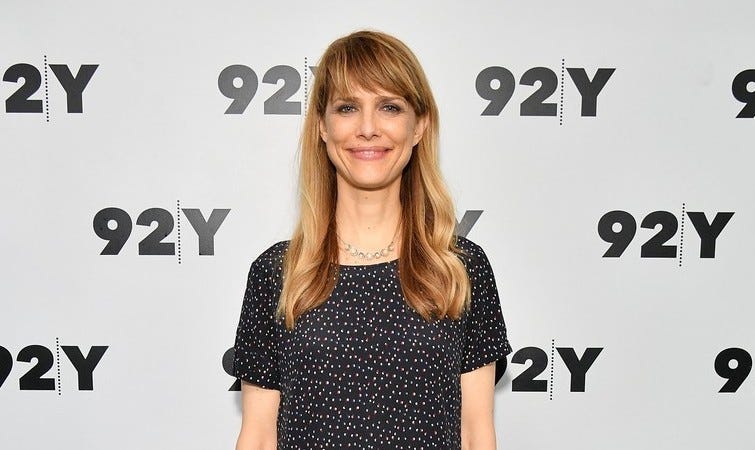auteurism: Lynn Shelton
This is the firstauteurism, a series of brief explainers on filmmakers we think are worth knowing more about.
The first entry is on Lynn Shelton, the director/writer ofHumpday, Your Sister’s Sister,andSword of Trust,along with being a prolific television director.Shelton passed away last Saturday. She was 54.

Lynn Shelton’s film career started at the age of 37, after she had realized that the French director Claire Denis was 40 when she made her debut film. Shelton had already accomplished quite a bit — a career as a stage actress, a master’s degree in photography and related media, work as a freelance editor — but was looking to put it all together and worried that she had missed her chance.
Shelton told the NYT that she had thought: “‘Oh, my God. [Claire Denis] was 40 when she made her first film. I thought it was too late for me, so in my head was, ‘Oh, I still have three more years.’”
This happened in Seattle in 2003. Not long after this realization, a local nonprofit offered to finance her debut film. The next year, she started filming We Go Way Back, a story about a struggling young actress. We Got Way Back came out in 2006 and won the Grand Jury Prize at Slamdance. She was 40; she had gotten it done in three years.
Shelton became associated with the low-budget, loose-fitted 2000s independent film movement affectionately/cruelly dubbed “Mumblecore” alongside Andrew Bujalski, Joe Swanberg, the Duplass brothers, and Greta Gerwig. Shelton applied for grants and threw fund-raising house parties to fund her next two films — My Effortless Brilliance (2008) and Humpday (2009) — the second about two estranged best friends who dare each other into making a gay porn together. She continued making independent, smaller-scale films with Your Sister’s Sister (2011), Touchy Feely (2013), Laggies (2014), Outside In (2017), and Sword of Trust (2019).
Shelton kept her film projects small out of necessity, focusing on the intimacy in strained relationships and hidden emotions within dialogue, in order to kept costs low. She used the same Seattle crew on her film productions and paid them using a profit-sharing system that gave everyone, crew and actors, equity in the film.


Her independence and joy in the communal process of filmmaking bore out in the stories she was telling. Watching a Lynn Shelton film feels like your best friend is telling you about all the difficult, complex parts of life but then laughs and throws their arm around you at the end so you end up feeling pretty good about it all somehow.
This is probably dumb and I’ve gone back and forth about even writing this but I promised to be honest here so sorry if it is dumb but Lynn always felt like she was our John Cassevetes. I remember first watching Faces and learning everything about Cassevetes, how he’d scrap together crews and funding and make his films on his own terms, and feeling so inspired. But his films were from a different time and for such a different audience. It wasn’t until I saw Humpday, the improvised scenes, the patient camera, the jaggedy editing, that I felt as though that way of storytelling was still possible. You could be unique and concerned with the human condition and you could rely on your community to tell the story you want to tell.
And that you could be patient and kind to yourself while you figured it out.
Films to watch:
We Go Way Back (2006)
My Effortless Brilliance (2008)
Humpday (2009)
Your Sister’s Sister (2011)
Touchy Feely (2013)
Laggies (2014)
Outside In (2017)
Sword of Trust (2019)
Episodes to watch:
Mad Men, “Hands and Knees”
Master of None, “Old People”
Love, “A Day”
To read:
A Wake for Lynn Shelton, Vulture
Lynn Shelton on Overcoming Her Darkest Moment on Set, The New York Times
Mark Duplass: How Lynn Shelton’s Work Showed ‘Both the Sadness and Joy of Life’, Variety
Lynn Shelton's Seemingly Effortless Brilliance, The Stranger
To watch/listen:
Lynn Shelton in Conversation with Illeana Douglas (Film Independent)
Remembering Lynn Shelton (WTF with Marc Maron)



